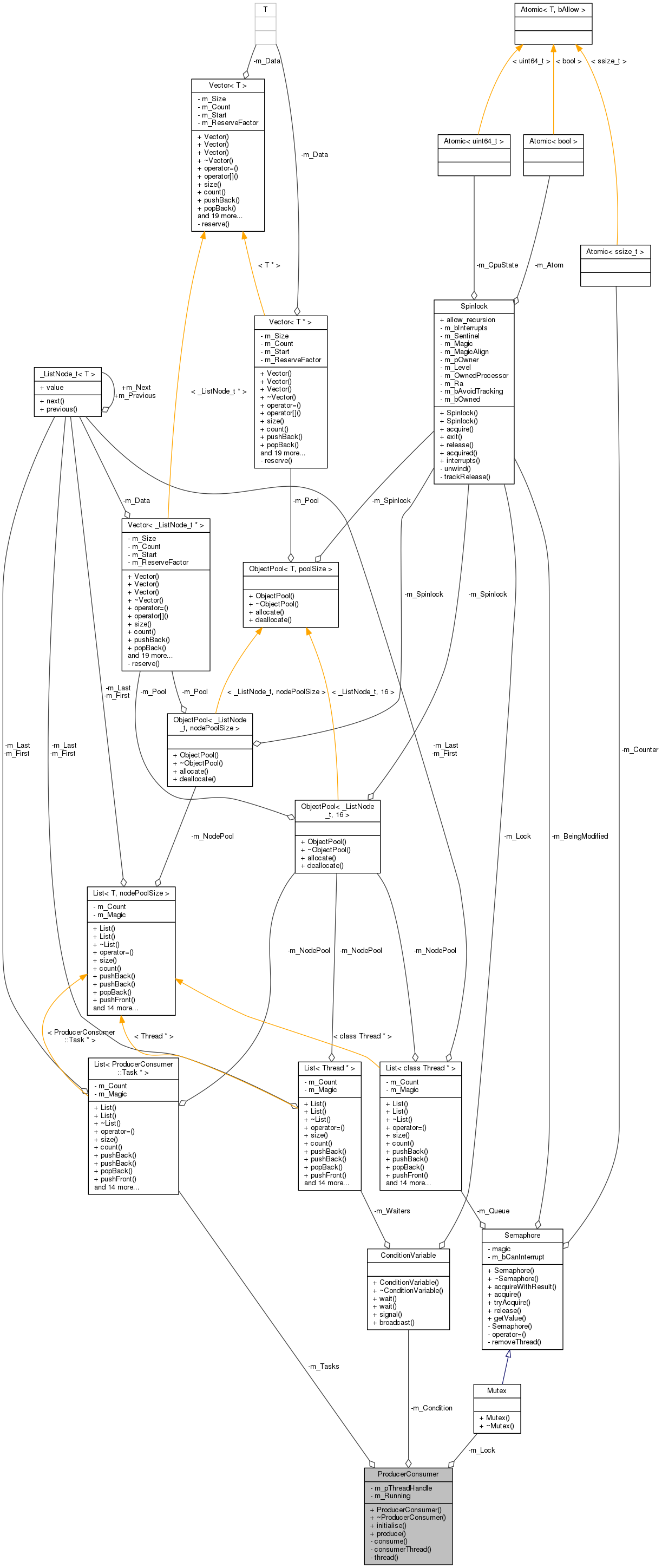#include <ProducerConsumer.h>
 Collaboration diagram for ProducerConsumer:
Collaboration diagram for ProducerConsumer:Classes | |
| struct | Task |
Public Member Functions | |
| bool | initialise () |
| void | produce (uint64_t p0=0, uint64_t p1=0, uint64_t p2=0, uint64_t p3=0, uint64_t p4=0, uint64_t p5=0, uint64_t p6=0, uint64_t p7=0, uint64_t p8=0) |
Private Member Functions | |
| virtual void | consume (uint64_t p0, uint64_t p1, uint64_t p2, uint64_t p3, uint64_t p4, uint64_t p5, uint64_t p6, uint64_t p7, uint64_t p8)=0 |
| void | consumerThread () |
Static Private Member Functions | |
| static int | thread (void *p) |
Private Attributes | |
| Mutex | m_Lock |
| ConditionVariable | m_Condition |
| List< Task * > | m_Tasks |
| void * | m_pThreadHandle = nullptr |
| bool | m_Running = false |
Detailed Description
ProducerConsumer provides a very light abstraction for a work queue.
Producer(s) push tasks into the queue by calling produce(). All of these work items are fire-and-forget - there is no way for callers to collect a return status or any other kind of information about the completion of a task. If this is important, a RequestQueue is a better choice.
The consumer, which inherits from ProducerConsumer, implements consume(). As tasks are produced, consume() is called for each task, one at a time.
In single-threaded environments, produce() just calls consume().
Definition at line 52 of file ProducerConsumer.h.
Member Function Documentation
|
private |
- Todo:
- should really use the result here.
Definition at line 97 of file ProducerConsumer.cc.
References Semaphore::acquire(), consumerThread(), Semaphore::release(), and ConditionVariable::wait().
Referenced by consumerThread().
 Here is the caller graph for this function:
Here is the caller graph for this function:The documentation for this class was generated from the following files:


 1.8.11
1.8.11